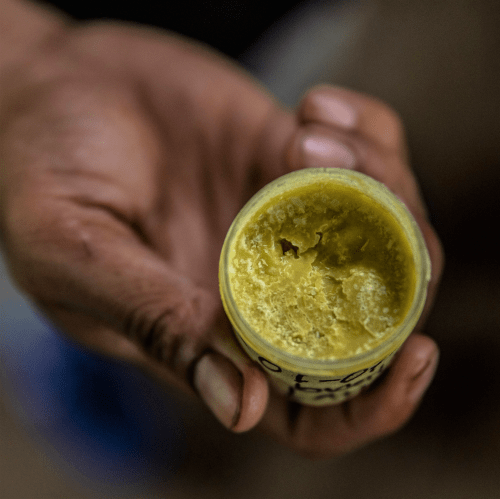How can companies choose eco-friendly ingredients for cosmetics – and also protect tropical forests? This natural solution starts in the hills of Kalimantan, in Indonesia.
Encroachment and logging have devastated Indonesia’s forests, but there are still some areas where the tengkawang tree grows. It can live for hundreds of years and is sacred to local Dayak communities. For as long as anyone can remember, people here have foraged the nuts to produce Illipe butter as a simple skincare treatment.
Now, with the help of Forestwise, the communities gather, sun-dry and quality-test the nuts, which are then sold as a premium product and a forest-friendly alternative to shea or cocoa. The improved economic value of the illipe nuts, and fair benefit-sharing throughout, provide strong incentives to protect the standing forest, as our friends at Partnerships For Forests explain:
Since 2018, Forestwise has been designing and building a processing unit and storage facility able to process about 500 tons of Illipe nut per year.
In early February, Forestwise signed a partnership agreement with Yayasan Riak Bumi – a local civil society organisation coordinating the Illipe Nut Network in West Kalimantan. With a shared conservation mission, Riak Bumi will enter the sustainable value chain and supply 100 tons of dried illipe nut. This translates to the conservation of around 68,000 ha of land and bringing 500 more people to prosperity.
This is just one of many regenerative business models, in Indonesia, Africa and Latin America, that are keeping tropical forests abundant and intact. Protecting and restoring our ecosystems can combine real financial returns with climate action and social impact.
With original reporting and insight from Partnerships for Forests and great photography by Kemal Juffri for Panos Pictures/Food and Land Use Coalition.
.

